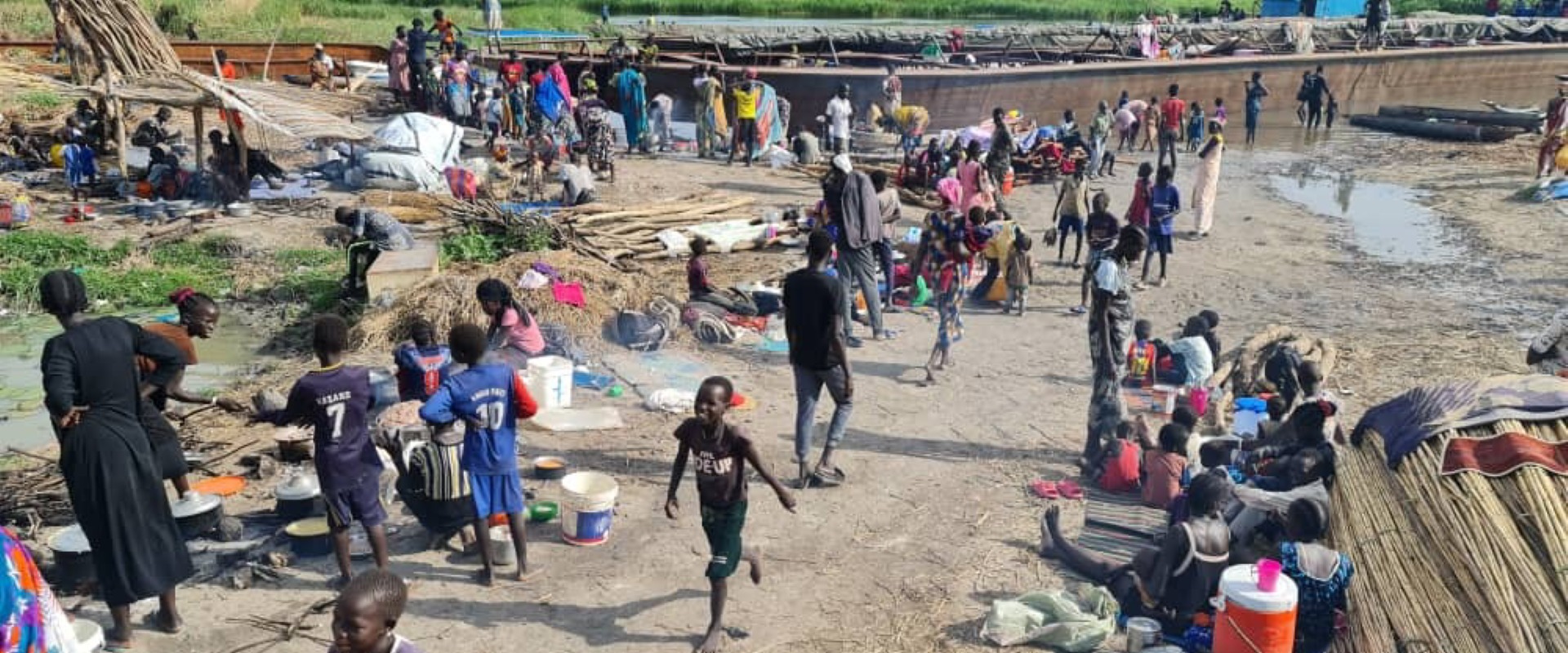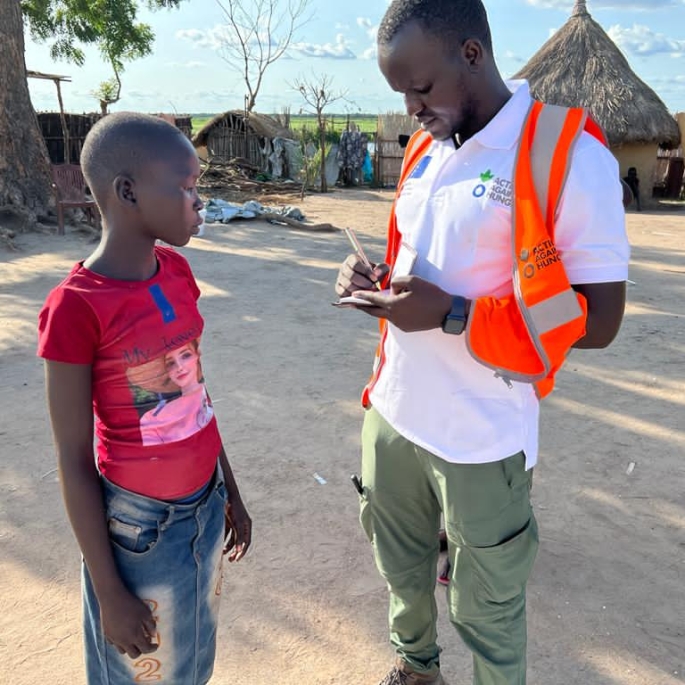
GIVE THIS RAMADAN

Last Month, 54,000 People Poured into South Sudan, Straining Already-Fragile Support Systems
The conflict in Sudan has passed the 100-day mark and more than 200,000 people have fled instability to neighboring South Sudan, creating a growing economic and humanitarian crisis. More than 54,000 people entered the country just last month, according to Action Against Hunger, a global nonprofit that is leading humanitarian response efforts in many parts of the country. An estimated 2,100 people are pouring into South Sudan each day, a country where more than half the population is hungry and systems are ill-equipped to handle the influx.
While some are Sudanese refugees, approximately 91% of the new arrivals are South Sudanese returnees, making them ineligible for international refugee programs. Nonprofits like Action Against Hunger are helping the government screen and treat these returnees at transit stations designed for temporary stays. However, without an adequate road or rail system, most destinations can only be reached by airlift or river transport, which is slow and costly. Funds are running out: in a July 26 press release, the United Nations warned that without an immediate $26 million, thousands of people will be stuck at temporary transit stations ill-equipped to care for them.
“Most people in transit are single mothers with children. When the sun rises, they don’t know how to start their day or how they will meet simple existential needs of food, water, and lodging. We are trying to help, but while people are arriving, funding isn’t.”
– Sulaiman Ken Sesay, Action Against Hunger’s Country Director for South Sudan
“Many are in shock since they never expected to find themselves in South Sudan,” said Sulaiman Ken Sesay, Action Against Hunger’s Country Director for South Sudan. “Some left as children and can name their home state, but not their village. They have no relatives where they are going, and they are worried about husbands and fathers left behind.”
People who have been resettled across South Sudan are increasing the need for local water, sanitation, and health services. In most markets, imported food is available but unaffordable amid rampant inflation. Both host communities and new arrivals look to groups like Action Against Hunger for emergency cash assistance and livelihood supports like seeds and tools for farming. Yet, climate change is putting this basic option out of reach, as changing weather patterns mean plants struggle to grow.
The conflict also has stalled exports of South Sudanese oil through the port of Khartoum, weakening South Sudan’s fragile economy and straining government coffers. Recent U.N. appeals have received less than one-third the funds needed.

Nyadat, 12, and her siblings were displaced from Sudan. They traveled to their family’s home village in South Sudan, but when the siblings arrived, no one recognized them. With nowhere to go, they turned to Action Against Hunger for help.
Action Against Hunger is reporting a recent outbreak of measles on the border, and is transporting medicines from Juba and has set up an isolation tent to try to stop the spread. Measles can be deadly for malnourished children, a medical condition facing nearly 5,000 children in South Sudan. Water-borne diseases also are a concern as people drink from the river and the rainy season makes sanitation particularly difficult in crowded transit stations.
“The already-strained healthcare system is breaking under the load,” Sesay said. “In the state of Warrap, for example, the only hospital for a population of approximately 2.6 million people is barely functioning as its main funding source, the Health Pool Fund, has ended its support. This situation has considerably constrained the ability to provide healthcare services, including doctors and essential drugs, to those in need. Action Against Hunger is working to fill the gap, but it is incredibly difficult when humanitarian support is spread so thin.”
Join our community of supporters passionate about ending world hunger.